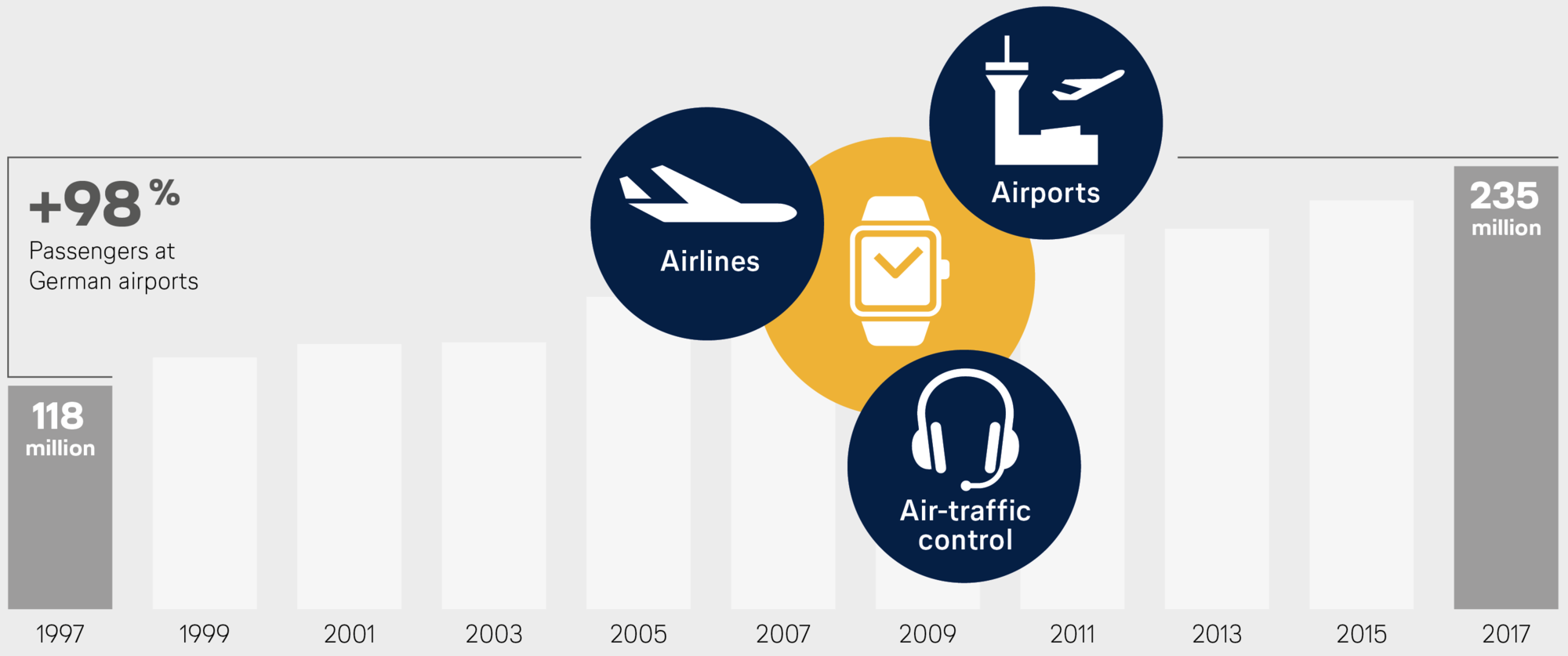The German aviation industry displays clear weaknesses. Air traffic control suffers from having too few air traffic controllers despite significantly increasing traffic. At airports, capacity bottlenecks are common in the areas of passenger and baggage handling. The security checkpoints turn out to be chokepoints. And there are problems with the airlines, too. The main causes are initial difficulties in the course of the Air Berlin integration as well as delayed aircraft deliveries on account of engine problems.
Lufthansa is investing
As Europe’s largest airline, Lufthansa takes its responsibility seriously and carries out its own measures to increase quality:
Capacities: In order to compensate for the delayed deliveries and above-average level of maintenance work for the new aircraft type, the Airbus A320neo, in the short term, Lufthansa is purchasing nine additional aircraft of its predecessor model, the A320ceo. In addition, more reserve aircraft will be available from 2019 onward.
Quality assurance: In order to stabilize flight operations, the Lufthansa Group will be investing around a quarter of a billion euros in the coming months. This means that 600 additional employees will be recruited to ensure operational quality alone.
Communication: Lufthansa will inform its customers faster and even earlier about any changes. In addition, compensation processes will also be speeded up.
All fields of reform – political as well as entrepreneurial – have to now be addressed together and swiftly, so that the German aviation security will once again stand not only for security but for reliability, too.
